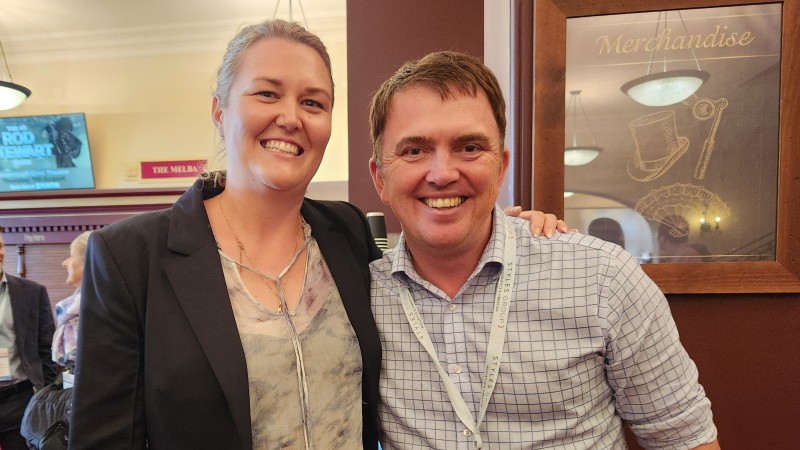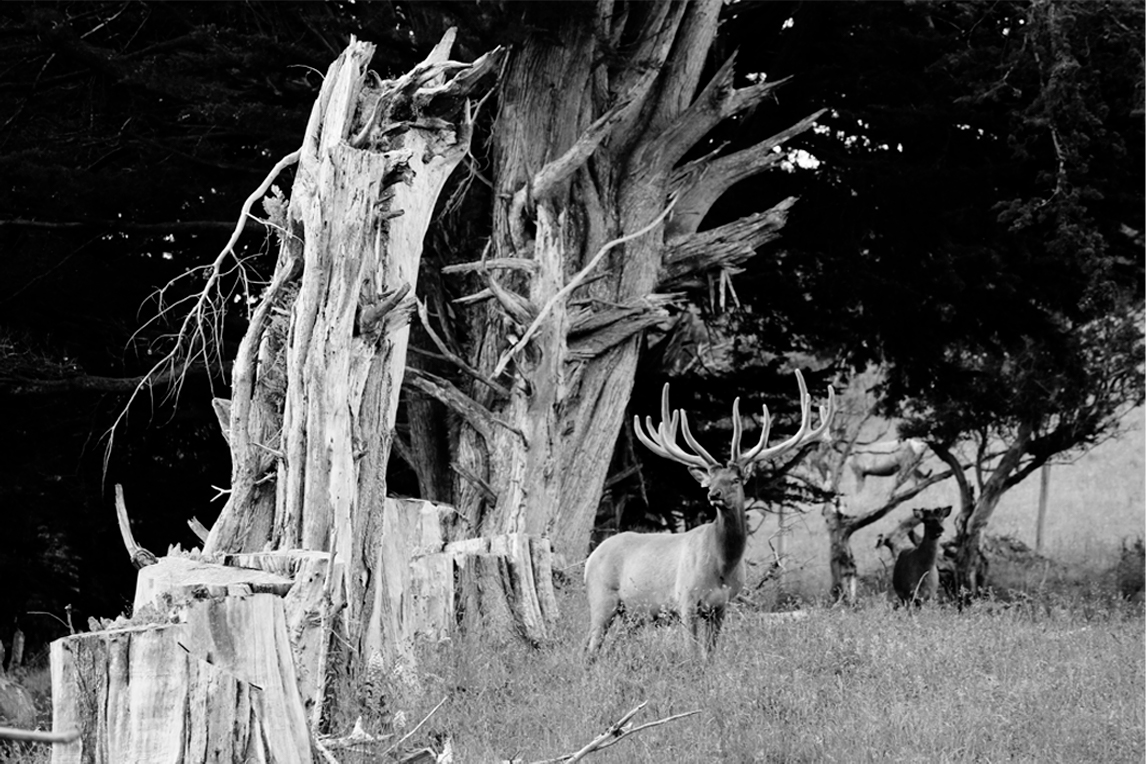Apr 30, 2025

Luka Jansen with Federated Farmers President Wayne Langford
Earlier this month, DINZ Environmental Stewardship Manager Luka Jansen attended the New Zealand Planning Conference, marking her 17th year as a member of the New Zealand Planning Institute (NZPI). Held in Southland, the conference had a strong farming focus, reflecting the region's agricultural roots.
One of the standout discussions was about Thriving Southland, a robust catchment initiative. Farmers shared their experiences on local farms involved in the program, highlighting the significant impact these groups have on improving water quality in their region. Jansen says that “it was truly inspiring to see the collective effort making a tangible difference.”
Environment Southland staff took the opportunity to discuss their regional planning rules, emphasising the requirement for all Southland farmers to have a certified farm plan by June 2026. The Council promoted the importance of these plans in enhancing water quality and ensuring that all farmers are committed to managing the environmental risks associated with farming activities.
A highlight of the conference for Jansen was the speech by Federated Farmers President Wayne Langford, who shared insights into the proactive measures farmers are taking to improve rural environments outside the farmgate. Langford talked about his extensive social and charity work, along with his personal mental health journey.
"Wayne spoke candidly about his mental health struggles and the challenges faced by farmers, leaving a lasting impression on the planners in attendance,” says Jansen.
The conference included a field trip to Bruce Dinnington’s dairy farm, who has switched to robotics to enable a lifestyle where he is not tied to milking twice a day at specific times. Housed cows were outperforming others in the region, while gaining international recognition for good animal welfare.
Jansen noted it was clear his cows were in great condition, which translates to a longer milking lifespan. Keeping animals warm in winter means that animals eat to produce milk and not to keep themselves warm. It also means there is less spoilage and pasture damage. The same benefits can be seen for those who farm deer in wintering barns.
Jansen’s personal highlight was meeting Grant Smith, CEO of Infratec.
“Grant's fascinating career spans over 40 years, during which he has been a pioneer in New Zealand's energy infrastructure. From constructing major mega-projects, such as hydro-stations and wind farms, to building the first private market-based anaerobic digestion facility in Reporoa, his contributions are monumental,” says Jansen.
Smith, who also serves on the boards of the Bioenergy Association of NZ (BANZ) and Ecogas GP Ltd, emphasised the need for a nationwide energy plan to keep pace with technological advancements and business innovations. He called for innovative thinking and proactive planning to harness New Zealand's geographical strengths, such as wind, solar, and geothermal resources.
He also mentioned plans for solar farms near Wayne Langford's farm in Golden Bay, suggesting that Wayne might one day become a solar farmer himself before envisioning a future where farmers are enabled and encouraged to produce their own energy (such as solar on dairy sheds) or farm with animals grazing beneath solar panels or wind turbines, producing meat sustainably.
The conference’s rich conversations provided insight into the positive changes ahead for farmers in New Zealand, where there will be less regulation and a stronger focus on property rights, together with ample opportunities to make farming systems more efficient on the ground.

